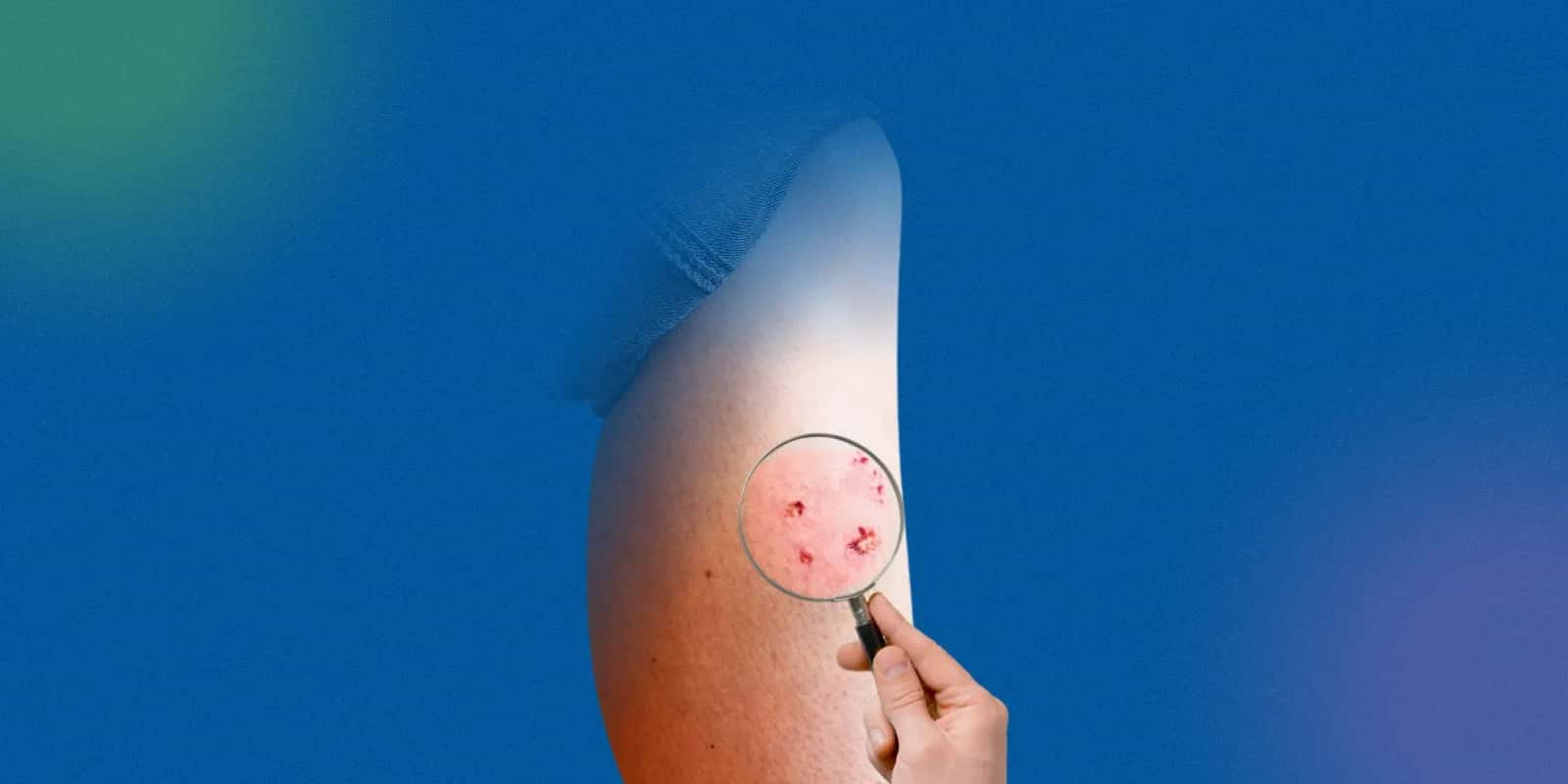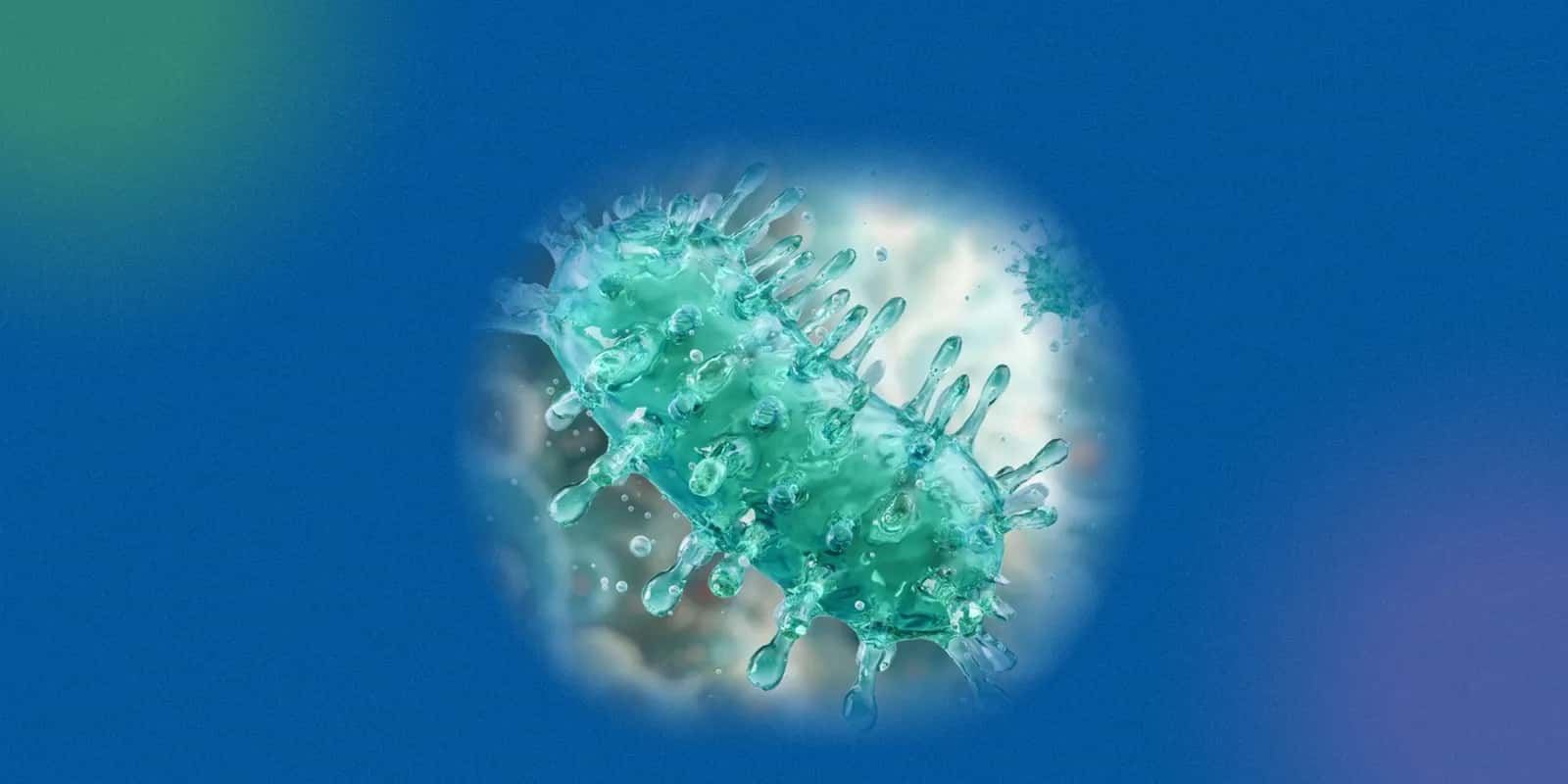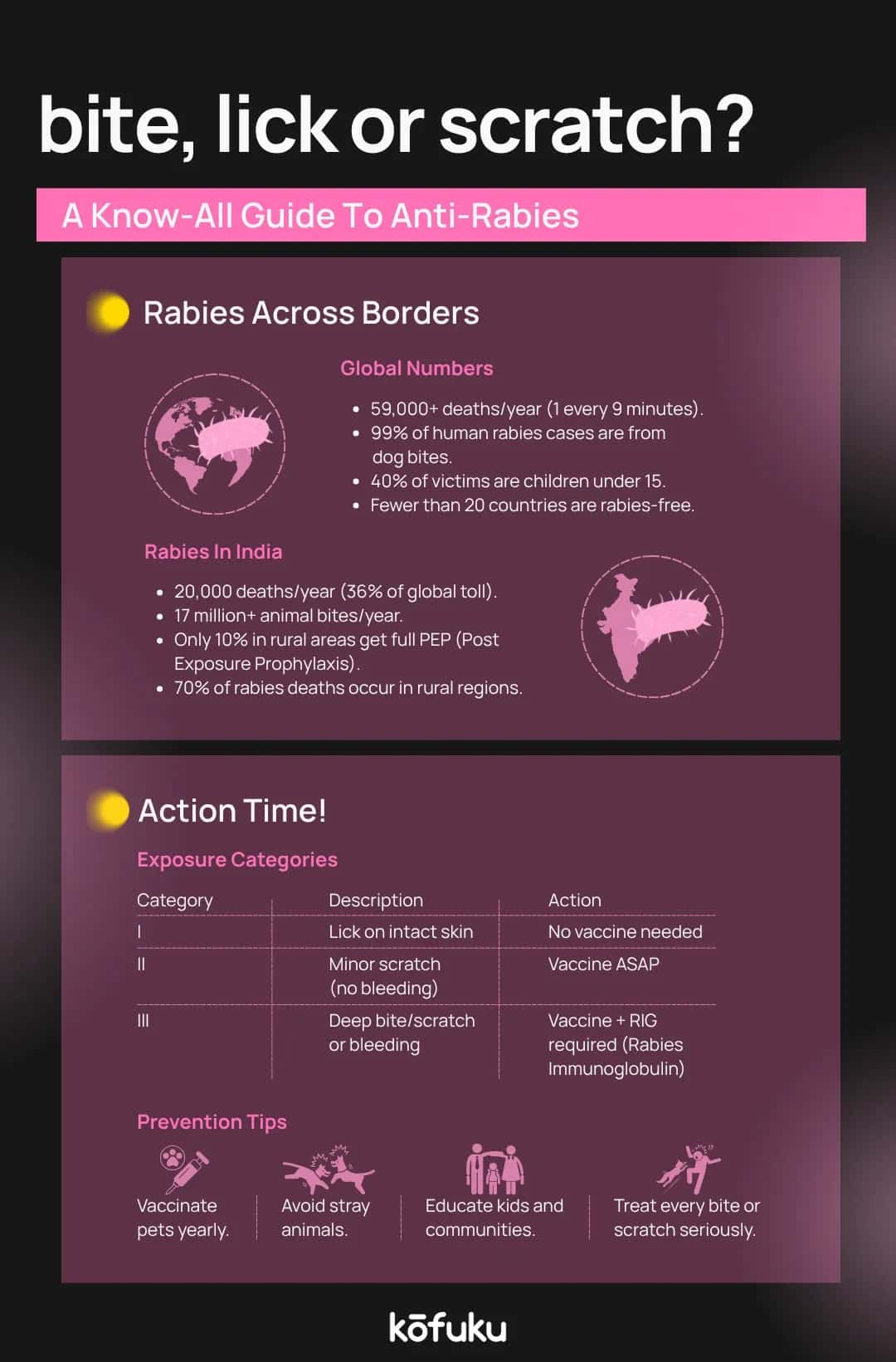Home
Blogs
Wellness Corner
Why Anti-Rabies Vaccination is Important, Whether It’s a Dog Bite or Scratch
Why Anti-Rabies Vaccination is Important, Whether It’s a Dog Bite or Scratch

Introduction
Whether it’s just a playful nip or a deep bite, any exposure to a dog’s saliva through broken or bruised skin should be treated immediately. Once rabies symptoms occur, it is almost always fatal in humans, but at the same time, it's also preventable if you take the proper precautions.
This guide will help you protect yourself, understand what to do, and how to avoid any future dog bites.
Protecting Yourself from Rabies After a Dog Bite
Wash the Wound Immediately
Whether it’s a bite or scratch, wash the area thoroughly with soap and running water for at least 15 minutes. This is your best initial line of defence against rabies or any other potential infection.
First-Aid
Apply an antiseptic, such as povidone-iodine or chlorhexidine, to the wound and wrap it in a clean bandage to minimize the chances of infection.
Seek Medical Attention Immediately
After you wash the wound, go to the doctor immediately. They will identify if you’re at risk of contracting rabies and start your anti-rabies vaccination as required.
Report the Bite
Contact local health or animal control. They may quarantine the dog to assess for rabies and investigate its vaccination history.

Best Practices for Handling Dog Bites
If you're wounded, here's what to do next:
- Apply direct and continuous pressure to the site of bleeding.
- Clean the bite area and disinfect it with soap and antiseptic.
- Seek medical evaluation for deep injuries that won’t stop bleeding, or if the bite is from a stray or unknown dog.
- The doctor can prescribe antibiotics, such as amoxicillin-clavulanate, and tetanus vaccine, or suture to promote healing.
What If Your Pet Dog Scratches You?
You must be wondering: Can a pet dog scratch cause rabies? Well, you’re safe if:
- The scratch is superficial, and the dog is vaccinated
- Your dog is well-groomed and bathed
- You're current with tetanus
However, you still need to follow these steps if your dog scratches you, even if it's your pet dog:
- Wash and disinfect the site as soon as possible.
- Monitor the wounded area and your dog for a few weeks.
- Consult your vet if you have any questions about the rabies status of your dog. If you're still concerned, consult your doctor for further guidance on next steps.

Common Pitfalls After Getting Bitten or Scratched by a Dog
-
Don't delay or ignore bites or scratches, as timely treatment is crucial in this case.
-
Avoid using home remedies, like stuffing the wound with spices or toothpaste, as this can lead to infections.
-
Don't cauterise or scrub the wound deeply; this destroys tissue and prolongs healing.
-
Don't use alcohol swabs over the wound, as this destroys and dries out the skin.
-
Don't delay rabies care; if left untreated, it can worsen and become incurable.
Takeaway
- Cleanse all wounds well, irrespective of whether it's a dog bite or scratch, fresh or old.
- Seek medical attention as soon as possible, as the safest time to start the vaccination is within a few hours of exposure.
- A scratch may lead to rabies, which is rare, but still a possibility, so don't assume that it is ok to ignore the wound.
- The rabies vaccination schedule typically requires 4-5 doses over 28 days in most countries; however, in India, the current vaccination course consists of four doses (administered on days 0, 3, 7, and 14).
- You may need a tetanus shot if your last vaccination was 5-10 years ago.
- Please report all cases and keep your pets up to date on vaccinations; the safety of your community depends on it.
Your Health vs Vaccine Anxiety
Rabies vaccinations are generally safe and effective. You may experience some soreness or redness after receiving the injection, as well as brief fatigue.
However, it’s still the better option in comparison to rabies if you’re afraid of getting an injection. If you complete the series of vaccinations on time, you should receive nearly 100% immunity from rabies.
However, if you’re still concerned about the possible side effects of the vaccines, please consult with your physician. Just keep in mind that when you compare the likely and terrible results of untreated rabies, the vaccine seems more than safe; it is life-saving!
Conclusion
From a deep bite to just a scratch, any exposure to a dog’s saliva carries a risk of rabies, a preventable but fatal, viral infection. While many people believe that scratches from pet dogs, especially if they are vaccinated, are not dangerous, the reality is different.
You should never downplay the seriousness of a bite or a scratch and risk rabies. Rabies virus is almost always fatal after the onset of symptoms, but entirely preventable through immediate treatment and proper wound care.
The only way to prevent rabies is through public awareness, responsible pet care, and immediate action. Remember, when it comes to rabies, always seek medical care, as only healthcare professionals can help you out of this potentially dangerous situation.

FAQs
Q. When should I get a rabies vaccine after a dog bite or scratch?
A. You should ideally receive the rabies vaccine within 24 hours of being bitten or scratched. So, please contact your doctor immediately for consultation and start the vaccination schedule.
Q. Are scratches from vaccinated dogs also dangerous?
A. If there is no saliva and your pet is vaccinated, then the risk of rabies is relatively low, but that doesn’t mean you can leave the wound unattended.
You need to clean the area and observe it closely. If you are unsure, it is best to talk to a doctor as they will give the vaccination if needed.
Q. How many doses of the rabies vaccine are required?
A. Most people will receive four to five doses of the vaccine over 28 days, but in India, we typically administer only four doses (on days 0, 3, 7, and 14).
Q. What happens if you delay anti-rabies treatment?
A. A delay in vaccination against rabies increases your chances of getting rabies. So, you must receive the vaccination without delay, or else it can put your life in jeopardy.
Q. Is it necessary to take a tetanus shot along with the rabies vaccine?
A. You should receive a tetanus booster if it has been five to 10 years since your last shot or if the wound is deep.

Breaking Antibiotics and Viral Infection Myths

Is There a Breast Cancer Vaccine? Yes, Here’s All You Need to Know About It

Right Arm or Left Arm? How Does the Efficacy of Vaccines Depend on Which Arm It Was Injected In?

What You Need to Know About the Russian Cancer Vaccine

Impact of Contagion on Healthcare Systems and Policies


